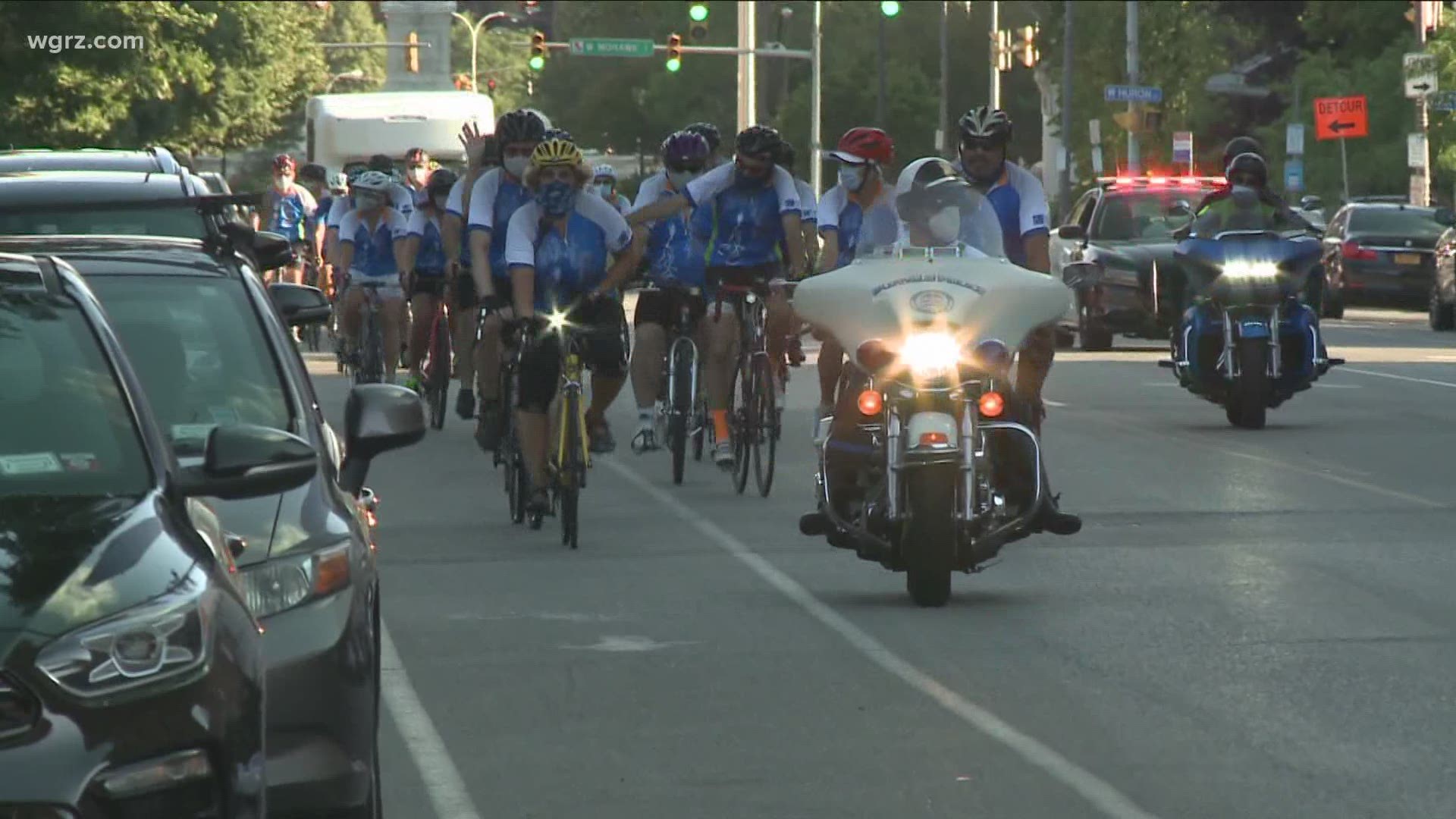BUFFALO, N.Y. — The Roswell Park Comprehensive Cancer Center announced Monday that the reimagined Ride for Roswell raised $3.49 million for cancer care and research.
Reimagined as the "Summer of the Ride" due to COVID-19, the event provided two ways for riders to participate and rise money for cancer research. This year was the 25th anniversary of the ride, with over 5,000 people participating in the reimagined event.
Roswell Park says over 1,200 riders participated in one of the five scheduled "ride days" at the University of Buffalo's North Campus, on Grand Island and in Arkon. To ensure social distancing, groups of 10 left every 20 minutes.
Thousands more participated in a different way. Some rode their bikes around their neighborhood with friends, or on their favorite bike paths with family, or by following carefully created routes.
"Ride for Roswell riders and supporters responded with ingenuity and determination when faced with this year’s challenges because they knew that the funds raised are more important than ever to support our patients, pursue critical research and save more lives from cancer,” said Dr. Candace Johnson, president and CEO of Roswell Park.
“It’s energizing to see all the creative things our riders did during the Summer of the Ride and all the ways our community showed support, from Tops’ DreamCycle ice cream to Big Ditch’s Lime Rider beer to our hour long TV special. I am grateful for every rider, every donor, every volunteer and every sponsor who has made this year possible under very difficult circumstances.”
The ride ended on August 21 with a TV special, featuring stories of riders, patients and cancer research at Roswell Park.
Over the past 25 years, the Ride for Roswell has raised $57 million for cutting edge cancer research and patient care programs at Roswell Park.
According to Roswell Park, "The funds raised through the Ride for Roswell have helped Roswell Park researchers investigate new treatment options; facilitated clinical trials for both common and rare types of cancers; supported the costs of important medical testing not covered by insurance, and made possible quality of life programs that assist with non-medical needs and help patients remember that cancer doesn’t define them."

